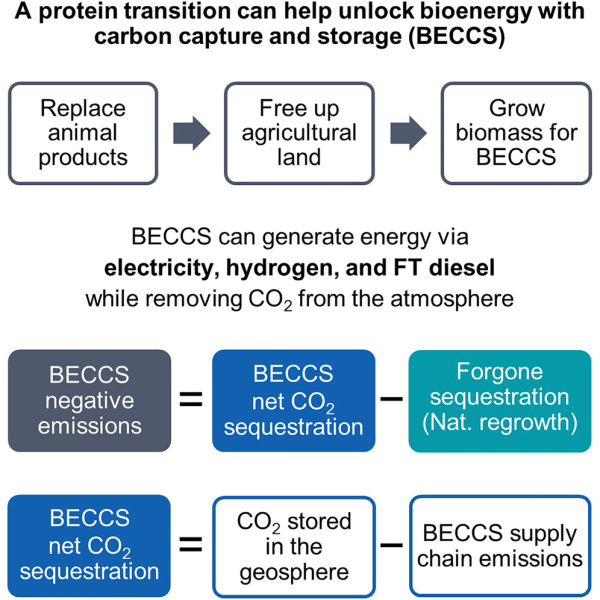
Researchers affiliated with the EU 1.5° Lifestyles project have co-published a pioneering paper in the One Earth journal. The paper, authored by Oscar Rueda, José M. Mogollón, Fabian Stenzel, and project partners Arnold Tukker, and Laura Scherer, sheds light on the potential of a protein transition to liberate vast expanses of land for sustainable energy production and carbon removal.
Titled "A protein transition can free up land to tap vast energy and negative emission potentials," the study underscores the critical role of bioenergy with carbon capture and storage (BECCS) in mitigating climate change, by extracting carbon dioxide from the atmosphere while generating renewable energy. The researchers highlight that the widespread deployment of BECCS could necessitate the expansion of cropland for biomass production, posing threats to biodiversity, food security, and water resources.
To address this challenge, the researchers propose a transition from animal-based proteins to alternative sources, such as plant-based proteins. By doing so, significant resources currently allocated to animal agriculture could be redirected to sustainable biomass production for BECCS, without the need for further agricultural expansion.
The findings of the study indicate that replacing just 50% of animal products by 2050 could release enough land to generate an impressive 26.4–39.5 EJelec/year of energy through BECCS, comparable to the scale of coal power production today. Moreover, this transition could lead to the removal of 5.9–9.3 GtCO2e/year from the atmosphere, equivalent to the emissions from coal power generation today.
This research not only underscores the feasibility of sustainable land use practices but also emphasises the importance of dietary choices in shaping environmental outcomes, and the need for wider socio-cultural changes to enable this. By advocating for a shift towards plant-based diets, policymakers and individuals alike can contribute to climate change mitigation efforts while promoting global food security and biodiversity conservation.
RIFS

